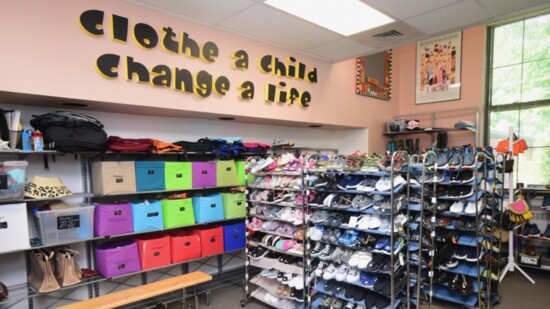POLISH NATIONAL YOUTH BASEBALL FOUNDATION
Recycle your old softball & baseball equipment.
America’s favorite pastime has reached the underprivileged boys and girls of Poland and Central Europe. Hundreds of boys and girls would love to play the games of Baseball and Softball, but they lack the equipment to play the sport.
Please donate your used equipment, your old gloves, balls, bats, uniforms, etc. You can do it as a group, team or individual.
Call Al Koproski at 203-323-9944, or email patkoproski@gmail.com. You may drop off items at The Knights of Columbus, 507 Shippan Ave., Bobby Valentines in Largo Park, or Clarks Trophy’s at 20 Acosta Street.
The children thank you!
POLISH NATIONAL YOUTH BASEBALL FOUNDATION
Al Koproski, National President
A 501(c) (3) non-profit organization.
CLOTHES TO KIDS OF FAIRFIELD COUNTY
Clothes to Kids started providing new and quality used clothing to low-income or in-crisis school age children free of charge in 2002 in Florida. In 2015, Stamford’s Elaine Rubinson was emotionally captured by testimonials she heard and the “template of the organization”. Elaine saw a need for this service in Fairfield County and began the Clothes to Kids of Fairfield County (CTKF) chapter in 2016. Based in the South end of Stamford in the Lathon Wider Community Center, CTKF envisions a community in which every school age child has quality clothing so they may attend school with the confidence and self-esteem needed to achieve academic success.
Clothes To Kids of Fairfield County is a 100% volunteer-operated nonprofit organization that depends on the generosity of individuals and businesses for financial support and donations of clothing and shoes. The CTKF Store is a boutique-style setting where children work with a personal shopper to choose clothing that is seasonal and ranges from coats to casual wear to undergarments to shoes. Each eligible child in grades K-12 can shop twice a year for a full
week’s wardrobe of school clothing. The goal is to provide children with clothing that makes them feel good about themselves.
If you would like to volunteer, donate clothing or if you want to recommend a family in need of this service, visit clothestokidsfairfieldcounty.org.
MAGNOLIA'S HOPE
When three-year-old Magnolia Tesler was diagnosed with a rare disease, her parents didn’t know what to do. An ordinary and healthy baby, she was crawling, talking, and hitting all her milestones. But around the age of two, she started developing mysterious symptoms: balance issues, hand wringing, speech loss, and rocking for hours in her crib. She was diagnosed with Rett Syndrome.
Imagine the symptoms of Autism, Cerebral Palsy, Parkinson’s, Epilepsy and Anxiety Disorder… all in one little girl.
Rett Syndrome is a serious lifelong neurological disorder that is caused by random mutations in a gene called MECP2. Diagnosed almost exclusively in girls, symptoms typically appear in toddlerhood. Many children with Rett are unable to speak, walk or use their hands. Breathing problems, feeding tubes, seizures, anxiety, gastrointestinal and orthopedic issues are common.
There are 350,000 people in the world suffering from Rett Syndrome. In America there are over 30 million people living with a rare disease. Many of those people struggled to get a diagnosis and then grapple with the hopelessness of a rare disease diagnosis. They feel alone, isolated, and their worlds get increasingly smaller as friends and family struggle to connect with them or understand what their day to day life is truly like.
In 2007 a science paper authored by Adrian Bird, PhD shocked the scientific community and parents alike. No one expected the symptoms of Rett to be dramatically reversible, especially in late stage disease. This landmark discovery puts Rett Syndrome into a unique position among neurological disorders and has fueled the remarkable portfolio of therapeutic approaches currently being pursued.
A donation supports important research by The Rett Syndrome Research Trust.
https://magnoliashope.com/
Hundreds of children would love to play Baseball but lack the equipment.
The goal is to provide children with clothing that makes them feel good about themselves.
They thought they would teach their daughter about the world. Instead they had to teach the world about their daughter.
